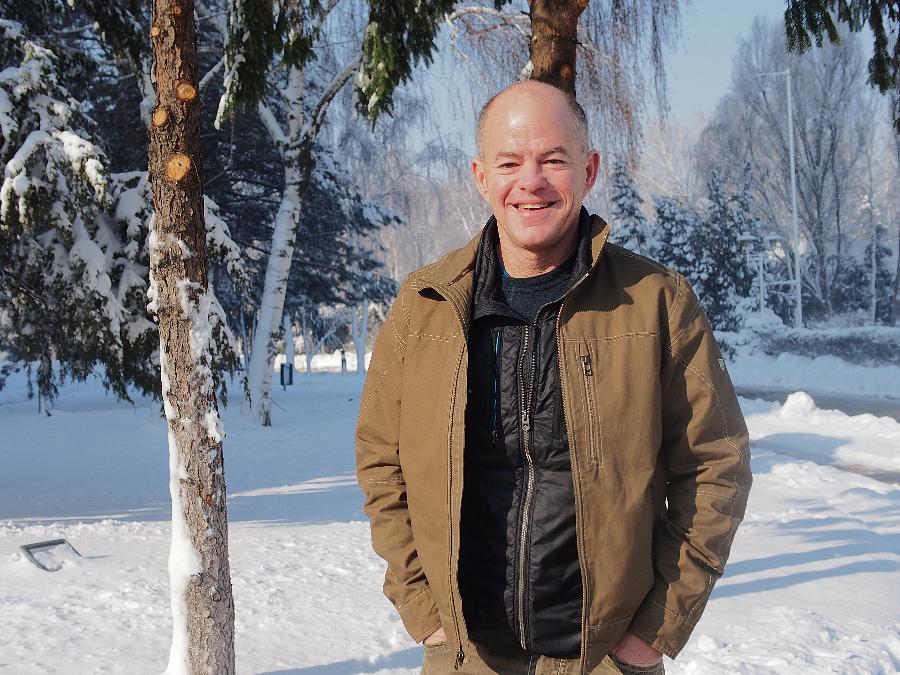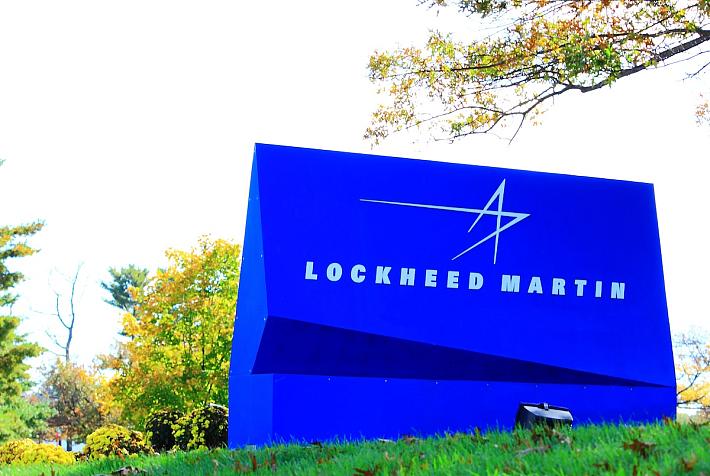The venture capitalist who left Silicon Valley for Romania to build something better

As a venture capitalist in Silicon Valley, Don Lothrop would go to bed and think "Here’s the 20 things I need to do tomorrow." Checking things off the list, that’s how days went by. Add to this, travelling back and forth from San Francisco to New York twice a week, being on 14 boards and being part of the US financial elite who made more than 30 million dollars.
And still, Don would sometimes get to the end of the day and ask himself: "did I even look a person in the eyes?" He had more money than he could ever spend but he was stressed and agitated.
Lothrop was high on the American Dream, but was already exhausted by it.
He was by no means alone in this. From outside, Silicon Valley looks like the glorious, high-tech hub, where the best people deliver the best results. And it may be true. But there’s more to that, Don says. Venture capitalists in the Silicon Valley are successful, but they are not happy. Money ruin their kids, and many of them are under some anti-depressive drug. The super rich and the beautiful women are lonely. People glob onto them because they are beautiful or rich, not because they care about them. "They’ll golf with you, ski with you, but you die and you have 30 people at your funeral."
Off the rollercoaster was Don Lothrop at 42. In June 2002, he told his colleagues at Delphi Ventures that he would not sign up for the next fund raise. "Guys, I’m not gonna do this anymore."
A long-term change began in him. Romania, a country with no absolutely no connection to Don, became part of it.
1.
A young waiter looks out on the large windows of a hotel in the north of Bucharest, Romania’s capital. So much snow has fallen that the hotel's surroundings seem like a ski resort. The ambient piano music lulls and dulls the guests checking in and out. It’s mid-January 2016.
Don Lothrop gets out of the elevator carrying his suitcase. The 56-year old man is dressed casually and looks sporty. He arrived yesterday evening in Bucharest, but he is already off to Cluj-Napoca. The former Silicon Valley investor has chosen a hotel located in the north of Bucharest, so he can be closer to the Otopeni airport. During his first 25 visits in Romania, Lothrop never stayed in a hotel. He was living in villages, with peasants.
Don Lothrop and his partners from the New Vista Partners fund are planning to build a new city from scratch in the north of Cluj-Napoca. They bought two huge pieces of land that reach 100 hectares, and 60% of this land is just parkland. Don wants to create a new city with a lot of space and nature. The place could have some 1,000 homes in the end.
Lothrop has also financed a media project called Pressone whose aim is to produce well-written and well-documented pieces of journalism. Its headquarters are also in Cluj-Napoca.
A few years ago, Don was flying back to the US, and he started counting the stamps in his passport. He had made 56 trips to Romania. By now he has collected 130 stamps.
2.
Don Lothrop defines himself in various ways.
He sees himself as the typical American who just wants to be left alone. “I don’t want my government to bug me. I don’t want a bunch of rules. I want to be free to be me.”
He is also the financial guy who is always trying to figure out who has the money. Whether is a church, business or school, the people who have money, who are profiting by the status quo, will be resistant to change, he says.
Don and some of his friends, who accompanied him on his first visits to Romania, were fascinated by the transition from communism to whatever the country would become. But they soon came to understand that Romania was no exception. “We realised we are fools.” Three-quarters of the countries in the world are the same, with 1,000 families who own everything and don’t want things to change. “The amazing thing is if one of these countries can actually change.” Lothrop gives the example of South Korea or Germany after the second world war. Transformation is possible, he believes.
As a kid, Don wasn’t particularly good at anything. He describes himself as a fat little red-headed child with no discernible gifts other than parents and grandparents that loved him regardless of how poorly he performed in school, sports or piano. With his dad working for P&G, Don grew up in Germany.The first thing that he succeeded at was becoming an all-state basketball player by the time he was in high school. “I went from being fat to a pretty good athlete. In high school I got maybe Bs and Cs and then at university I got all As, maybe some Bs.” He started working for KPMG, and six years later he got into Harvard Business School. He ended up graduating among 30 out of the 900 students.
In his early 20s, two girls who Don dated told him that all the other guys were bragging that they would be very successful, even millionaires, but Don never talked about that. “I had never thought about it. I had a desire to achieve inside of me, but it wasn’t like I tried. I knew I was gonna succeed. It was in my DNA. I want to be a good basketball player? I have to work hard.”
3.
Don was at a dinner in San Francisco in October 2003 when he heard a story of forgiveness that took place in Oradea, Western Romania. It was about a Romanian prison guard who was dying of kidney cancer and tried to find and apologize to a pastor that he had repeatedly beaten in jail 15 years earlier. The man who was telling the story heard it from a woman who run an orphanage in Oradea.
At the time Don was going through a lot of changes. He had decided not to sign up for the next fund raise at Delphi Ventures, had moved out of the house over one year ago, and was now living in a small place near his former home. He would a read a book every week, and tried to discover the purpose of his life.
Bearing in mind the philosophy that failure is the best teacher, Don had managed to get up high on the social and economical hierarchy by the time he was 40. He had pursued the American dream: be all that you can be. In Don’s everyday reality, the American dream meant a lot of money, an exciting job, family, good friends, golf memberships at 4 private clubs and a couple of homes in California. Nothing to complain about. Except that he was not happy.
Lothrop would look around him and see other venture capitalists whose children could go to Yale, they could get a job at Goldman Sachs, but were disconnected from reality. “When you raise your kids in this super wealthy world, with the best schools, best teachers, best violin, kids don’t learn how to be kids, they don’t learn how to fail. Failure is an essential part of growing up.”
By that time, he also discovered the Bible. He wasn’t a religious person and saw hypocrisy in churches and pastors. He knew that churches get corrupted too, like businesses and governments do. But he wanted to understand if there is any reality with Jesus. So he began a series of changes that seemed absurd from the outside.
Was Don leaving the American Dream? Was it a midlife crisis? Don doesn’t mind calling it so. “Usually you need a crisis. Sometimes you need to be broken, to really look honestly at your life.”
Then in October 2003 he went to the dinner party in San Francisco, and heard the story about the Romanian guard asking for forgiveness from the man he had tortured. He also heard about an orphanage in Oradea. He went home that evening and couldn’t take his mind off these topics. Lothrop decided to donate 25,000 dollars to the orphanage. Up until then he had never given away more than 100 dollars. It was hard to give it up. He had just saved his money.
Three months later, he had his first Romanian stamp in the passport.
4.
Lothrop spent his last day of 2003 in a Romanian village. An ocean away from his normal life, he discovered the village life. He felt peace observing nature and people. And for the first time in a long time he wasn’t telling people what he was doing.
It was humbling to meet people who were born into a more challenging world than his world was. Don says that he was a child of America’s most Spoiled Generation. He never had to serve in the military. The stock market grew by a multiple of twenty from the time he graduated college until he was able to retire at 42. “I had loving parents, the best schools, a choice of jobs, and many mentors. I had not earned any of these things, they were part of the world I was born into.”
After his first visit, Don shared his experience and convinced other friends and investors to accompany him to Romania. Steven Schelhammer, for example, came with him 16 times of his first 20 visits to Romania.
The first thing Don realised after leaving Silicon Valley was the simple thing that he was a dad. If he had his kids near him, he could sleep; if not, he couldn’t. The second thing was that his money was to create new things, because he is a venture capitalist.
In the beginning, Don did only charity work in Romania. Together with the CEOs of the companies Delphi Ventures was investing in, he built a medical clinic in Romania, a soccer field. But he slowly realised that Romania offers great business opportunities.
He and Steve Schelhammer put 5 million dollars into a new fund called New Vista Partners with no idea what they would do at first. Then they came up with the idea of creating in Romania one of the nicest places in Europe. They bought over 200 parcels of land that reach 100 hectares. Now they are about to start building a new city from scratch. “We’re gonna put 8 million dollars in infrastructure before we sell anything. You may be stressed about your job but you will not be stressed about your neighbourhood.”
Lothrop is an optimist. He has proven that personal change is possible, and now wants to see if Romania can also change. Don believes there is no point in complaining about what is wrong. "Just build something better."
By Diana Mesesan, features writer, diana@romania-insider.com
(photo by Diana Mesesan)













